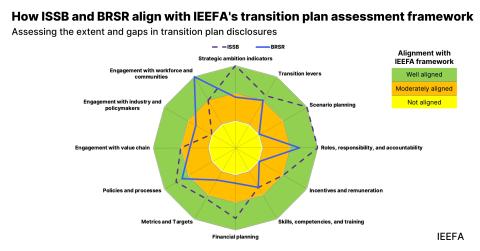Turkey at a crossroads: Invest in the old energy economy or the new?
Download Full Report
Key Findings
A rapid, subsidized lignite-fueled power plant build-out would put upward pressure on currently low electricity prices.
The subsidy scheme in the new electricity law would undercut recent progress in liberalizing Turkish energy markets.
By trying to improve its energy security by increasing its dependence on coal, Turkey would be fighting a losing battle against the larger energy transformation occurring globally and in other important emerging economies.
Executive Summary
Turkey is at a crossroads, deciding whether to invest in the old energy economy or the new.
The choice is stark: one path leads to a coal-fired past while the other points toward a brighter future rooted in renewables.
Whichever direction Turkish policymakers choose will have momentum on its side. National consensus clearly favors better energy security and greater diversification in how the country fuels its electricity grid. On these two points there is no debate.
How Turkey will achieve these goals is uncertain, however, as policymakers weigh whether to push the country toward construction of a new lignite-fired fleet of generators or to take part in a global energy sector transformation fueled by renewables.
Worldwide, solar- and wind-powered resources combined with gains in energy efficiency continue to establish viable—indeed superior—alternatives to coal-powered electricity generation. Renewables are more economically sustainable, less financially risky, and better for the environment and public health.
Renewables have market forces on their side. As investment in coal-fired generation is waning, investment in solar, wind and energy-efficient technologies is rising. The world is on the verge of an exponential—rather than linear—growth rate for new technologies, a trend that support expansion of solar-supported battery systems especially and to which capital flows are adjusting accordingly.
Renewables provide more than just an energy solution to any given economy. Their development drives innovation that is likely to spill over to into other sectors, raising the potential for skill-based development and providing vast employment opportunities.
In the meantime, as renewables gain market share, the myth of coal has dwindled. Coal is no longer seen—as it once rightly was—as the tool for broader economic development. Coalfired generation in the new energy economy is proving increasingly unviable for the overleveraged and high-priced risks it carries, which include both political risk and market risk. More important, coal is losing market share because it is no longer cost competitive.
This energy transformation is occurring fastest in developing economies. China and India are at the limits of their coal-fired generation because of the unacceptable levels of air pollution it creates, and the growth of renewables in both China and India—and in several other emerging economies—is exceeding government expectations. This uptake of renewable energy is driven by the convergence of demand for capacity that can alleviate energy poverty, the desire for national energy security and the push for diversification. It is supported by a growing flow of investor capital.
Turkey is at risk of missing this boat.
Please view full report PDF for references and sources.















